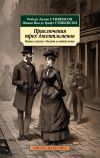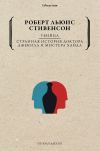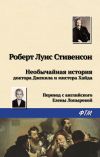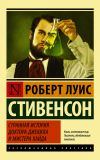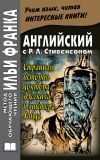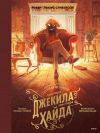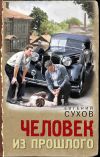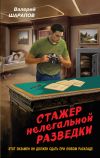Текст книги "Странная история доктора Джекила и мистера Хайда / Strange Case of Dr Jekyll and Mr. Hyde"
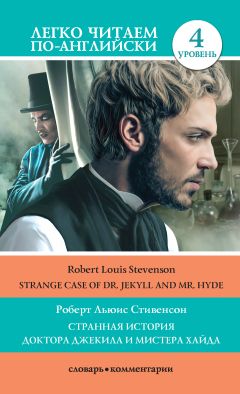
Автор книги: Роберт Стивенсон
Жанр: Иностранные языки, Наука и Образование
Возрастные ограничения: +12
сообщить о неприемлемом содержимом
Текущая страница: 2 (всего у книги 7 страниц) [доступный отрывок для чтения: 2 страниц]
The Carew Murder Case
Nearly a year later, in the month of October, 18—, London was startled by a crime of singular ferocity. The details were few and startling. A maid servant living alone in a house not far from the river, had gone upstairs to bed about eleven. Although a fog rolled over the city, the early part of the night was cloudless, and the lane, which the maid’s window overlooked, was brilliantly lit by the full moon. So she sat down upon her box, which stood under the window, and fell into a dream. Never (she used to say, with streaming tears, when she narrated that experience), never had she felt more at peace with all men or thought more kindly of the world. And as she so sat she saw an aged and beautiful gentleman with white hair, drawing near along the lane; and advancing to meet him, another and very small gentleman, to whom at first she paid less attention. The older man bowed and accosted the other with a very pretty manner of politeness. It sometimes appeared as if he were only inquiring his way; but the moon shone on his face as he spoke, and the girl was pleased to watch it. Presently her eye wandered to the other, and she was surprised to recognise in him a certain Mr. Hyde, who had once visited her master and for whom she had conceived a dislike. He had in his hand a heavy cane, with which he was trifling; but he did not answer a word, and seemed to listen with an ill-contained impatience. And then all of a sudden[15]15
all of a sudden – внезапно
[Закрыть] he broke out in a great flame of anger, stamping with his foot, brandishing the cane, and carrying on (as the maid described it) like a madman. The old gentleman took a step back, with the air of one very much surprised and hurt; and at that Mr. Hyde broke out of all bounds and clubbed him to the earth. And next moment, with fury, he was trampling his victim under foot and hailing down a storm of blows, under which the bones were audibly shattered and the body jumped upon the roadway. At the horror of these sights and sounds, the maid fainted.
It was two o’clock when she came to herself and called for the police. The murderer was gone long ago; but there lay his victim in the middle of the lane, incredibly mangled. The stick with which the deed had been done, although it was of some rare and very tough and heavy wood, had broken in the middle under the stress of this insensate cruelty; and one splintered half had rolled in the gutter—the other, without doubt, had been carried away by the murderer. A purse and a gold watch were found upon the victim: but no cards or papers, except a sealed and stamped envelope, which he had been probably carrying to the post, and which bore the name and address of Mr. Utterson.
This was brought to the lawyer the next morning.
“I shall say nothing till I have seen the body,” said he; “this may be very serious. Have the kindness to wait while I dress.”
And he drove to the police station, whither the body had been carried. As soon as he came into the cell, he nodded.
“Yes,” said he, “I recognise him. I am sorry to say that this is Sir Danvers Carew[16]16
Danvers Carew – Дэнверс Кэрью
[Закрыть].”
“Good God, sir,” exclaimed the officer, “is it possible?”
And the next moment his eye lighted up with professional ambition.
“This will make a deal of noise,” he said. “And perhaps you can help us to catch the criminal.”
And he briefly narrated what the maid had seen, and showed the broken stick.
When the stick was laid before Mr. Utterson, broken and battered as it was, he recognised it for one that he had himself presented many years before to Henry Jekyll.
“Is this Mr. Hyde a person of small stature?” he inquired.
“Particularly small and particularly wicked-looking, is what the maid calls him,” said the officer.
Mr. Utterson reflected; and then, raising his head, “If you will come with me in my cab,” he said, “I think I can take you to his house.”
It was by this time about nine in the morning, and the first fog of the season. The dismal quarter of Soho seemed, in the lawyer’s eyes, like a district of some city in a nightmare. The thoughts of his mind were the gloomiest.
As the cab drew up before the address indicated, the fog lifted a little and showed him a dingy street, an eating-house, many ragged children huddled in the doorways, and many women of different nationalities passing out, key in hand, to have a morning glass; and the next moment the fog settled down again upon that part and cut him off from the surroundings. This was the home of Henry Jekyll’s favourite; of a man who was heir to a quarter of a million sterling.
An ivory-faced and silvery-haired old woman opened the door. She had an evil face, but her manners were excellent. Yes, she said, this was Mr. Hyde’s, but he was not at home; he had been in that night very late, but had gone away again in less than an hour. There was nothing strange in that; his habits were very irregular, and he was often absent; for instance, it was nearly two months since she had seen him till yesterday.
“Very well, then, we wish to see his rooms,” said the lawyer; and when the woman began to declare it was impossible, “I had better tell you who this person is,” he added. “This is Inspector Newcomen of Scotland Yard[17]17
Inspector Newcomen of Scotland Yard – инспектор Ньюкомен из Скотланд-Ярда
[Закрыть].”
A flash of odious joy appeared upon the woman’s face.
“Ah!” said she, “he is in trouble! What has he done?”
Mr. Utterson and the inspector exchanged glances.
“He is not very popular here,” observed the latter. “And now, my good woman, just let me and this gentleman come in.”
In the whole house, Mr. Hyde had only used a couple of rooms; but these were furnished with luxury and good taste. The plate was of silver, the napery elegant; a good picture hung upon the walls, a gift (as Utterson supposed) from Henry Jekyll, who was much of a connoisseur; and the carpets were of many plies and agreeable in colour. At this moment, however, the rooms bore every mark of having been recently and hurriedly ransacked; clothes lay about the floor, with their pockets inside out; drawers stood open; and on the hearth there lay a pile of grey ashes, as though many papers had been burned. The inspector disinterred the butt-end of a green cheque-book, which had resisted the action of the fire; the other half of the stick was found behind the door; and as this clinched his suspicions, the officer declared himself delighted. A visit to the bank, where several thousand pounds were found to be lying to the murderer’s credit, completed his gratification.
“You may be sure, sir,” he told Mr. Utterson: “I have him in my hand.[18]18
I have him in my hand. – Он у меня в руках.
[Закрыть] He must have lost his head, or he never would have left the stick or, above all, burned the cheque-book. Money is everything to him. We have nothing to do but wait for him at the bank, and get out the handbills[19]19
get out the handbills – разослать описание его личности
[Закрыть].”
However, this was not so easy to accomplish; for Mr. Hyde had few familiars—even the master of the servant-maid had only seen him twice. His family could nowhere be traced. He had never been photographed; and the few who could describe him differed widely, as common observers will. Only on one point, were they agreed; and that was the haunting sense of unexpressed deformity with which the fugitive impressed his beholders.
Incident of the Letter
It was late in the afternoon, when Mr. Utterson found his way to Dr. Jekyll’s door, where he was at once admitted by Poole, and carried down to the building which was known as the laboratory or the dissecting-rooms[20]20
dissecting-rooms – анатомический театр
[Закрыть]. The doctor had bought the house from the heirs of a celebrated surgeon. But his own tastes were rather chemical than anatomical, so he had changed the destination of the block. It was the first time that the lawyer had been received in that part of his friend’s quarters; and he eyed the dingy, windowless structure with curiosity, and gazed round with a distasteful sense of strangeness. At the further end, a flight of stairs mounted to a door covered with red baize; and through this, Mr. Utterson was at last received into the doctor’s cabinet. It was a large room, furnished, among other things, with a mirror-glass and a big table. There were three dusty windows barred with iron in the room. A fire burned in the grate; a lamp was set lighted on the chimney shelf; and there sat Dr. Jekyll, looking deadly sick. He did not rise to meet his visitor, but held out a cold hand and bade him welcome in a changed voice.
“And now,” said Mr. Utterson, as soon as Poole had left them, “you have heard the news?”
The doctor shuddered. “They were crying it in the square,” he said.
“I heard them in my dining-room.”
“One word,” said the lawyer. “Carew was my client, but so are you, and I want to know what I am doing. You have not been mad enough to hide this fellow?”
“Utterson, I swear to God,” cried the doctor, “I swear to God I will never meet him again. I bind my honour to you that I am done with him in this world. It is all at an end. And indeed he does not want my help; you do not know him as I do; he is safe, he is quite safe; mark my words, he will never more be heard of.”
The lawyer listened gloomily; he did not like his friend’s feverish manner.
“Are you sure? For your sake,” said he; “I hope you may be right. If it came to a trial, your name might appear.”
“I am quite sure,” replied Jekyll; “I have grounds for certainty that I cannot share with anyone. I have—I have received a letter; and I don’t know whether I should show it to the police. I should like to leave it in your hands, Utterson; you would judge wisely, I am sure; I have so great a trust in you.”
Utterson ruminated a while.
“Well,” said he, at last, “let me see the letter.”
The letter was written in an odd, upright hand and signed “Edward Hyde”: and it signified, briefly enough, that the writer’s benefactor, Dr. Jekyll, whom he had long so unworthily repaid for a thousand generosities, need not worry for his safety, as he had means of escape. The lawyer liked this letter.
“Have you the envelope?” he asked.
“I burned it,” replied Jekyll. “But it bore no postmark. The letter was brought to me.”
“May I keep this?” asked Utterson.
“I wish you to judge for me entirely,” was the reply. “I have lost confidence in myself.”
“Well, I shall consider,” returned the lawyer. “And now one word more: it was Hyde who dictated the terms in your will about that disappearance?”
The doctor shut his mouth tight and nodded.
“I knew it,” said Utterson. “He meant to murder you. You have had a fine escape.”
“Even more,” returned the doctor solemnly: “I have had a lesson—O God, Utterson, what a lesson I have had!”
And he covered his face for a moment with his hands.
On his way out, the lawyer stopped and had a word or two with Poole.
“By the by[21]21
by the by – кстати
[Закрыть],” said he, “there was a letter handed in today: what was the messenger like?”
But Poole said that nobody had come.
Plainly the letter had come by the laboratory door; possibly, indeed, it had been written in the cabinet; and if that were so, it must be differently judged, and handled with the more caution. The newsboys, as he went, were crying themselves hoarse along the footways:
“Special edition! Shocking murder of an M. P.[22]22
M. P. – член парламента
[Закрыть]!”
Presently after, Utterson sat at home, with Mr. Guest, his head clerk. The fog still slept above the drowned city, where the lamps glimmered like carbuncles. But the room was gay with firelight. Insensibly the lawyer melted. There was no man from whom he kept fewer secrets than Mr. Guest. Guest he knew Poole; he could hear of Mr. Hyde’s familiarity about the house; he might draw conclusions. And above all since Guest, being a great student and critic of handwriting, would consider something useful.
“This is a sad business about Sir Danvers,” said Utterson.
“Yes, sir, indeed,” returned Guest. “The man, of course, was mad.”
“I should like to hear your views on that,” replied Utterson. “I have a document here in his handwriting; it is between ourselves, for I scarce know what to do about it; it is an ugly business. But there it is; a murderer’s autograph.”
Guest sat down at once and studied it with passion.
“No, sir,” he said: “not mad; but it is an odd hand.”
“And by all accounts a very odd writer,” added the lawyer.
Just then the servant entered with a note.
“Is that from Dr. Jekyll, sir?” inquired the clerk. “I thought I knew the writing. Anything private, Mr. Utterson?”
“Only an invitation to dinner. Why? Do you want to see it?”
“One moment. I thank you, sir”; and the clerk laid the two sheets of paper alongside and sedulously compared their contents.
“Thank you, sir,” he said at last, returning both; “it’s a very interesting autograph.”
There was a pause, during which Mr. Utterson struggled with himself.
“Why did you compare them, Guest?” he inquired suddenly.
“Well, sir,” returned the clerk, “there’s a rather singular resemblance; the two hands are in many points identical: only differently sloped.”
“Rather quaint,” said Utterson.
“It is, as you say, rather quaint,” returned Guest.
“I wouldn’t speak of this note, you know,” said the master.
“No, sir,” said the clerk. “I understand.”
But no sooner was Mr. Utterson alone that night than he locked the note into his safe.
“What!” he thought. “Henry Jekyll writes for a murderer!”
And his blood ran cold in his veins.
Remarkable Incident of Dr. Lanyon
Time ran on; thousands of pounds were offered in reward, for the death of Sir Danvers was resented as a public injury[23]23
public injury – оскорбление, нанесённое обществу
[Закрыть]; but Mr. Hyde had disappeared out of the ken of the police as though he had never existed. Much of his past was unearthed, indeed, and all disreputable. Tales came out of the man’s cruelty, at once so callous and violent; of his vile life, of his strange associates, of the hatred that seemed to have surrounded his career; but of his present whereabouts, not a whisper. From the time he had left the house in Soho on the morning of the murder, he was simply blotted out; and gradually, as time drew on, Mr. Utterson began to recover from his alarm, and to grow more at quiet with himself.
Now that that evil influence had been withdrawn, a new life began for Dr. Jekyll. He came out of his seclusion, renewed relations with his friends, became once more their familiar guest and entertainer. He was busy, he was much in the open air, he did good; his face seemed to open and brighten, as if with an inward consciousness of service; and for more than two months, the doctor was at peace[24]24
was at peace – жил мирно
[Закрыть].
On the 8th of January Utterson had dined at the doctor’s with a small party[25]25
with a small party – в узком кругу друзей
[Закрыть]; Lanyon had been there; and the face of the host had looked from one to the other as in the old days when the trio were inseparable friends. On the 12th, and again on the 14th, the door was shut against the lawyer.
“The doctor is busy,” Poole said.
On the 15th, Utterson tried again, and was again refused. The fifth night he had in Guest to dine with him; and the sixth he betook himself to Dr. Lanyon’s.
There at least he was not denied admittance; but when he came in, he was shocked at the change which had taken place in the doctor’s appearance. He had his death-warrant[26]26
death-warrant – смертный приговор
[Закрыть] written legibly upon his face. The rosy man had grown pale; his flesh had fallen away; he was visibly balder and older. It was unlikely that the doctor should fear death; and yet that was what Utterson was tempted to suspect.
“Yes,” he thought; “he is a doctor, he must know his own state and that his days are counted; and the knowledge is more than he can bear.”
And yet when Utterson remarked on his ill-looks, it was with an air of greatness that Lanyon declared himself a doomed man.
“I have had a shock,” he said, “and I shall never recover. It is a question of weeks. Well, life has been pleasant; I liked it; yes, sir, I used to like it. I sometimes think if we knew all, we should be more glad to get away.”
“Jekyll is ill, too,” observed Utterson. “Have you seen him?”
But Lanyon’s face changed, and he held up a trembling hand. “I wish to see or hear no more of Dr. Jekyll,” he said in a loud, unsteady voice. “I am quite done with that person; and this person is dead for me.”
“Tut-tut,” said Mr. Utterson; and then after a considerable pause, “Can’t I do anything?” he inquired. “We are three very old friends, Lanyon; we cannot make others.”
“Nothing can be done,” returned Lanyon; “ask Dr. Jekyll.”
“He will not see me,” said the lawyer.
“I am not surprised at that,” was the reply. “Some day, Utterson, after I am dead, you may perhaps come to learn everything. I cannot tell you. And in the meantime, if you can sit and talk with me of other things, for God’s sake, stay and do so; but if you cannot forget this accursed topic, then, in God’s name, go, for I cannot bear it.”
As soon as he got home, Utterson sat down and wrote to Jekyll, complaining of his exclusion from the house, and asking the cause of this unhappy break with Lanyon; and the next day brought him a long answer. The quarrel with Lanyon was incurable.
“I do not blame our old friend,” Jekyll wrote, “but I share his view that we must never meet. I mean from henceforth to lead a life of extreme seclusion; you must not be surprised, nor must you doubt my friendship, if my door is often shut even to you. I have brought on myself a punishment and a danger that I cannot name. If I am the chief of sinners, I am the chief of sufferers also. And you can do but one thing, Utterson, to respect my silence.”
Utterson was amazed; the dark influence of Hyde had been withdrawn, the doctor had returned to his old tasks and amities; a week ago, the prospect had smiled; and now in a moment, friendship, and peace of mind, and the whole life of his were wrecked. So great and unprepared a change pointed to madness.
A week afterwards Dr. Lanyon took to his bed[27]27
took to his bed – слёг
[Закрыть], and in something less than a fortnight he was dead. The night after the funeral, Utterson locked the door of his business room, and sitting there by the light of a melancholy candle, drew out and set before him an envelope addressed by the hand and sealed with the seal of his dead friend.
“PRIVATE: for the hands of G. J. Utterson ALONE and in case of his predecease to be destroyed unread,” so it was emphatically superscribed; and the lawyer dreaded to behold the contents.
“I have buried one friend today,” he thought: “what if this should cost me another?”
And then he condemned the fear as a disloyalty, and broke the seal. Within there was another enclosure, likewise sealed, and marked upon the cover as “not to be opened till the death or disappearance of Dr. Henry Jekyll.”
Utterson could not trust his eyes. Yes, it was disappearance; here again, as in the mad will which he had long ago restored to its author, here again were the idea of a disappearance and the name of Henry Jekyll. But in the will, that idea had sprung from the sinister suggestion of the man Hyde; it was set there with a purpose all too plain and horrible.
Written by the hand of Lanyon, what should it mean? A great curiosity came on the trustee, to disregard the prohibition and dive at once to the bottom of these mysteries; but professional honour and faith to his dead friend were stringent obligations; and the packet slept in the inmost corner of his private safe.
From that day forth, Utterson did not desire the society of his surviving friend with the same eagerness. He thought of him kindly; but his thoughts were disquieted and fearful. Poole had, indeed, no very pleasant news to communicate. The doctor, it appeared, now more than ever confined himself to the cabinet over the laboratory, where he would sometimes even sleep; he had grown very silent, he did not read; it seemed as if he had something on his mind. So Utterson fell off little by little in the frequency of his visits.
Incident at the Window
It happened on Sunday. Mr. Utterson was on his usual walk with Mr. Enfield, their way lay once again through the by-street; and they came in front of the door, both stopped to gaze on it.
“Well,” said Enfield, “that story’s at an end at least. We shall never see more of Mr. Hyde.”
“I hope not,” said Utterson. “Did I ever tell you that I once saw him, and shared your feeling of repulsion?”
“I can imagine,” returned Enfield. “And by the way, this is a back way to Dr. Jekyll’s! It was partly your own fault that I found it out, even when I did.”
“So you found it out, did you?” said Utterson. “We may step into the court and take a look at the windows. To tell you the truth, I am uneasy about poor Jekyll; and even outside, I feel as if the presence of a friend might do him good.”
The court was very cool and a little damp. The middle one of the three windows was half-way open; and Dr. Jekyll himself was sitting close beside it, taking the air with infinite sadness, like some disconsolate prisoner.
“What! Jekyll!” he cried. “I hope you are better.”
“I am very low[28]28
I am very low – мне очень плохо
[Закрыть], Utterson,” replied the doctor, drearily, “very low. It will not last long, thank God.”
“You stay too much indoors,” said the lawyer. “You should be out. This is my cousin—Mr. Enfield—Dr. Jekyll. Come, now; get your hat and take a quick turn with us.”
“You are very good,” sighed the other. “I should like to very much; but no, no, no, it is quite impossible; I dare not. But indeed, Utterson, I am very glad to see you; this is really a great pleasure; I would ask you and Mr. Enfield up, but the place is really not fit.”
“Why then,” said the lawyer, “the best thing we can do is to stay down here and speak with you from where we are.”
“That is just what I was about to propose,” returned the doctor with a smile. His words were hardly uttered, before the smile was struck out of his face and succeeded by an expression of abject terror and despair. The two gentlemen saw it but for a glimpse, for the window was instantly thrust down; but that glimpse had been sufficient, and they turned and left the court without a word. In silence, they traversed the by-street. They were both pale; and there was a horror in their eyes.
“God forgive us, God forgive us,” said Mr. Utterson.
But Mr. Enfield only nodded his head very seriously and walked on in silence.
Внимание! Это не конец книги.
Если начало книги вам понравилось, то полную версию можно приобрести у нашего партнёра - распространителя легального контента. Поддержите автора!Правообладателям!
Данное произведение размещено по согласованию с ООО "ЛитРес" (20% исходного текста). Если размещение книги нарушает чьи-либо права, то сообщите об этом.Читателям!
Оплатили, но не знаете что делать дальше?